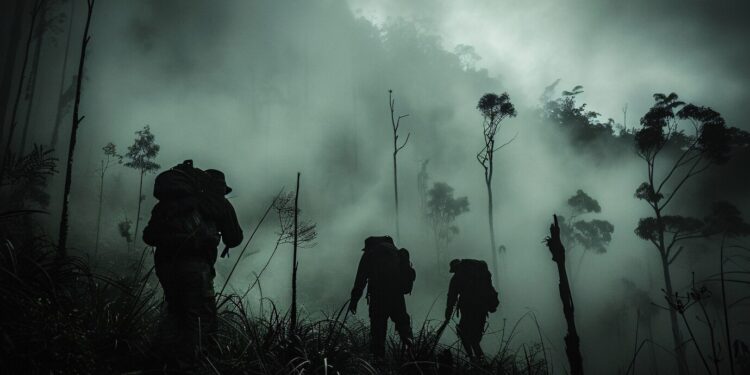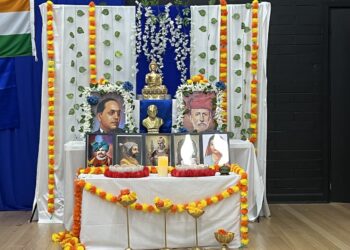India has vowed a strong and uncompromising response after a militant attack in Kashmir claimed the lives of 26 tourists, including 25 Indian nationals and one Nepalese citizen, and left at least 17 injured. The gun attack, which took place on Monday in the scenic Baisaran Valley near the popular resort town of Pahalgam, has been described by officials as the worst targeting of civilians in the region since the 2008 Mumbai attacks.
The victims were part of a group of domestic tourists hiking in the remote valley when they were ambushed by armed men dressed in military-style fatigues, who opened fire indiscriminately. Witness accounts describe a scene of panic and horror. One survivor told local media that she saw her husband shot at close range after he identified himself as Hindu.
Militant Group Claims Responsibility
The attack was swiftly claimed by a group calling itself the “Kashmir Resistance”, believed to be a front for Pakistan-based militant outfits Lashkar-e-Taiba and Hizbul Mujahideen. In a statement, the group alleged that the victims were linked to Indian intelligence and security forces and expressed opposition to the recent settlement of “outsiders” in Kashmir, calling it an attempt at “demographic engineering” by the Indian government.
Indian authorities have dismissed the claims as propaganda and labelled the killings as a cowardly terror strike on innocent civilians, timed to disrupt the upcoming tourist season and derail efforts to bring economic normalcy back to the region.
New Delhi Responds with Military and Diplomatic Rigor
Prime Minister Narendra Modi, who was on an official visit to Saudi Arabia at the time of the incident, immediately cut short his trip and returned to Delhi, where he chaired a high-level security meeting with the National Security Adviser, top army commanders, and intelligence officials.
Defence Minister Rajnath Singh stated unequivocally that India would deliver a “loud and clear response” to both the attackers and their backers. “We will not only bring the perpetrators to justice but also dismantle the networks that shelter and finance them,” he said.
The National Investigation Agency (NIA) has taken over the probe and released sketches of three suspects. Security forces have since detained over 100 individuals across the Kashmir valley for questioning, and a multi-agency manhunt is underway.
Surge in Security and Impact on Tourism
Union Home Minister Amit Shah travelled to Srinagar on Tuesday to oversee the region’s security preparedness. Additional paramilitary deployments have been rushed to key areas, and drone surveillance has been intensified in and around tourist hotspots.
The attack has cast a shadow over Kashmir’s resurgent tourism industry, which had recorded record footfall in 2024. In the immediate aftermath, several airlines operated emergency outbound flights from Srinagar as panic-stricken tourists hurried to leave. Hotel cancellations surged, and local travel agents reported a sharp drop in new bookings.
Kashmir’s economy, heavily dependent on tourism and handicrafts, is expected to take a short-term hit. Local business leaders and tourism associations, while condemning the attack, urged travellers not to abandon the valley altogether.
Domestic and Global Condemnation
The attack has drawn widespread condemnation across the political spectrum. Former Jammu and Kashmir Chief Minister Mehbooba Mufti called the incident “barbaric” and said such violence would only isolate the region further.
Opposition parties have slammed the government over intelligence failures and lapses in security, demanding accountability from both central and state authorities.
Internationally, world leaders have extended their condolences and condemned the attack. US President Donald Trump, UK Prime Minister Keir Starmer, and leaders from Russia, China, Saudi Arabia, and France have expressed solidarity with India and reaffirmed their commitment to combating terrorism.
Kashmir on Edge
This latest attack comes amid a period of heightened tension in Kashmir, following India’s move in 2019 to revoke the region’s special constitutional status. Since then, there has been a visible push to integrate the region through infrastructure and demographic initiatives, which militant groups and separatists have opposed.
Despite efforts to normalise the region, sporadic violence and attacks on civilians have continued. Monday’s massacre is a grim reminder of the enduring fault lines in the region and the challenges ahead in restoring long-term peace.
A Nation in Mourning, A Government Under Pressure
As the nation mourns the loss of innocent lives, pressure is mounting on the Indian government to not only respond forcefully but to rethink its security architecture in Kashmir. For the families of those killed, and for millions across the country, the expectation is clear: justice must be swift, and peace must prevail.
With investigations ongoing and diplomatic channels activated, India’s response in the coming days will likely shape the security narrative in the region for months to come.











